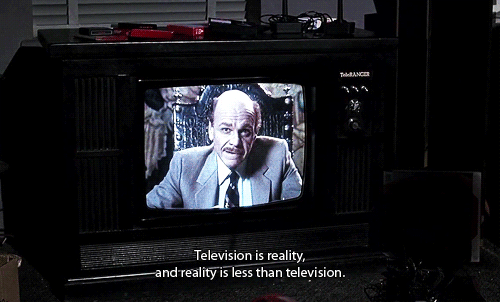‘The Hitman’s Wife’s Bodyguard’ Review
Plus: What are people watching? It's a trickier question than you realize.
Every once in a while, I like to see a sequel to a movie that I haven’t seen the first installment of in order to see how difficult it is to follow what’s happening. I could gussy this up as a grand experiment in the vagaries of narrative or the nonlinear nature of our fractured cinematic landscape; if I’m being totally honest, it’s because I don’t want to be bothered to see the predecessor for something I know I’ll have marginal use for anyway.
You can probably guess why I mention this at the top of my review of The Hitman’s Wife’s Bodyguard. Now allow me to guess the plot of the last film, 2017’s The Hitman’s Bodyguard: Ryan Reynolds played a bodyguard for notorious hitman Samuel L. Jackson, and ended up getting disbarred from the bodyguarding profession, at least temporarily, for aiding and abetting a known mass murderer and sworn enemy of the bodyguard guild. Something like that?
I don’t think it matters too much with a movie series this, erm, high concept. As you can glean from the title, the hitman’s wife, Salma Hayek, is now in the mix. As the film opens, she takes the bodyguard away from a hard-earned, therapist-ordered sabbatical in order to help rescue her husband from the Mafia. He’s supposed to have given up bodyguarding, at least for the time being. But she wants him to bodyguard! What’s Ryan Reynolds supposed to do?
The title is a bit of a misnomer, really, since Ryan Reynolds is less of a “bodyguard” and more of a “one-man rescue team.” Yes, at one point he does have to play-act as Salma Hayek’s bodyguard in order to get the coordinates of European internet data hubs so she can get them to Antonio Banderas, who hopes to destroy the vital infrastructure of Europe as revenge for the EU’s disrespect of Greece. (It will be interesting to see these weirdly dated subplots pop up in films shot before the pandemic over the next year or so, won’t it?)
With a movie like this the plot and the setup are all pretty incidental anyway: It’s an action-comedy with A-list stars, so the thing will either work or fail because the stars do or don’t have the chemistry to pull it off. I’ve always had a weakness for Ryan Reynolds and his peculiar brand of snarky charm and Samuel L. Jackson is always nice to see onscreen. Who doesn’t love watching Salma Hayek play a curvy, tough-as-nails firecracker? Antonio Banderas doesn’t lean into the absurdity of his role quite as hard as he could, but that’s okay. The personalities are all there.
I’d be lying if I said there weren’t a few moments when I chuckled—I won’t spoil exactly what he’s doing, but Ryan Reynolds’s pantomime in a bar while Samuel L. Jackson is on the phone with Salma Hayek is genuinely laugh-out-loud funny, a sublimely incongruous bit of physical comedy that he sells with a charmingly smarmy look—but I’d also be lying if I said it were riotously funny.
In the end, The Hitman’s Wife’s Bodyguard is just kind of there. I don’t hate it. I can’t see how anyone would love it. The concept is high and the cast is good and the action is competently shot and there’s something to be said for a good, solid, R-rated action-comedy with lots of F-bombs and canoed-out heads. It’s the sort of filler multiplexes need to sustain auditoriums between blockbusters and awards season.
It’s … adequate? But I’m not sure that’s enough.
If you’d rather stay in with a good book about movies than head out to the multiplex to watch a movie, make sure to check out this week’s episode of The Bulwark Goes to Hollywood. Bill Ryan and Greg Ferrara joined me so we could chat about our favorite film books, and there are some great recommendations here. Give it a listen now! And, as a reminder, if you enjoy this newsletter and my podcasts, one way you could support them is by signing up for a Bulwark+ membership. At the very least, please consider sharing it with a friend. It’s the best way to help spread the Screen Time gospel.
57 Channels (And Nothin’ On)
There’s more stuff to watch than ever before. There’s no way to judge how many people are watching that stuff. And that feels untenable.
First: For all the talk about shutdowns and slowdowns, if you feel like there’s a glut of viewable stuff, you’re not alone. The Wall Street Journal has the numbers, but the numbers are pretty simple: more, more, more. As streaming services begin to compete with each other in earnest, winning eyeballs is getting more difficult. Netflix’s answer is to throw a ton of stuff at the wall and see what sticks, producing 133 films between 2016 and 2020 and promising a new release every week this year.
Paramount says it wants a movie a week on its Paramount+ platform starting in 2022. HBO Max has released a combination of HBO Max originals and the Warner Bros. theatrical slate in an effort to shore up its streaming platform. Prime Video seems more interested in TV, but it too is delivering big projects like The Underground Railroad and Invincible.
And theaters are back, baby! I’m going to go out on a limb and say that either F9 or Black Widow has an $100 million-or-better opening weekend in the next month or so here. We’re still waiting to see if a non-franchise, non-horror movie can make box office waves, but The Big Movies look like they’re going to be okay.
Still: with all this stuff to watch, it’s hard to tell what’s actually being watched. Enter Nielsen, the longtime trackers of viewer habits that thinks it has the solution to this problem.
“On Thursday, the firm reported that 64 percent of the time American viewers used their television sets in May 2021 was spent watching network and cable TV, while they watched streaming services about 26 percent of the time,” the New York Times reported this week. “Another 9 percent of the time, they were using their TV screens for things like video games or watching programs or films they had saved on DVR.”
This is all well and good, but hopefully you see the problem here. I’ll give you a sec.
Got it?
That’s right: these are TV-based numbers. Which, fine. It’s still how lots of people watch what they watch! I have a very nice TV and I love watching things on it. But this is the future, man, and in the future, people are watching things on their laptop and their phone and their tablet and, God help us, their watches. Knowing how people use their TVs is useful. But it is by no means a great way to figure out what’s popular on these services.
And determining what’s popular matters. It matters because it helps shape the conversation. Mostly it matters because it helps shape what gets made. The fact that Netflix has no—zero—films that have “maintained significant public interest for more than five months” is, honestly, kind of shocking! I mean, Netflix is in around half of American households. It’s everywhere. And yet: no one’s talking about their stuff.
Part of that is because there’s so much of it. Part of that is because Netflix eschews the long advertising campaigns so many theatrical releases require to recoup their nine-figure budgets. Part of that is because, honestly, it’s often very mediocre.
And that’s the real problem here. Sure, there’s a ton of stuff to watch. But most of it’s just not that good. Maybe that’s not a new problem—indeed, maybe it’s just a continuation of the “57 channels and nothin’ on” problem we’ve lived with for years—but it’s still a problem.
Assigned Viewing: Shooter (Prime Video)
I watched it this week in preparation for director Antoine Fuqua’s Infinite, because this movie also stars Mark Wahlberg and, well, I’d never seen it before. On the one hand, it’s at least a little silly and contrived, being about a sniper who is set up to take the fall for a presidential assassination attempt.
On the other, it’s pretty efficient, it has a couple of fantastic action sequences, and it perfectly mimics the incredibly confusing and aggravating reality of driving through downtown Philadelphia, a hellhole designed by sociopaths to confuse out-of-towners.





The TV series of "Shooter" had an enjoyable first season that collapsed under its own weight in the second season. (And the book they're both based on is equally silly & contrived, but a good beach read.)
I have not been to Philadelphia... but your description reminds me of pretty much of all parts of the metro Houston area.